Do you need to park your vehicle on a grassy surface? You might be wondering if doing so will do any damage to your car or the lawn. Well, we've done plenty of research to find you these answers. Let's discuss them below!
Parking on a grassy surface will not damage your vehicle if parked there short term. However, regular parking on the grass, or long-term parking on this surface, can damage it and your car.
Now that we know that damage can occur to both the grass and the vehicle, we'll look at the circumstances that create those problems. You may be curious if parking a car on dirt is bad for tires or if there is a way to park on the grass without damaging it.
For the answers to these questions and more, keep reading ahead!
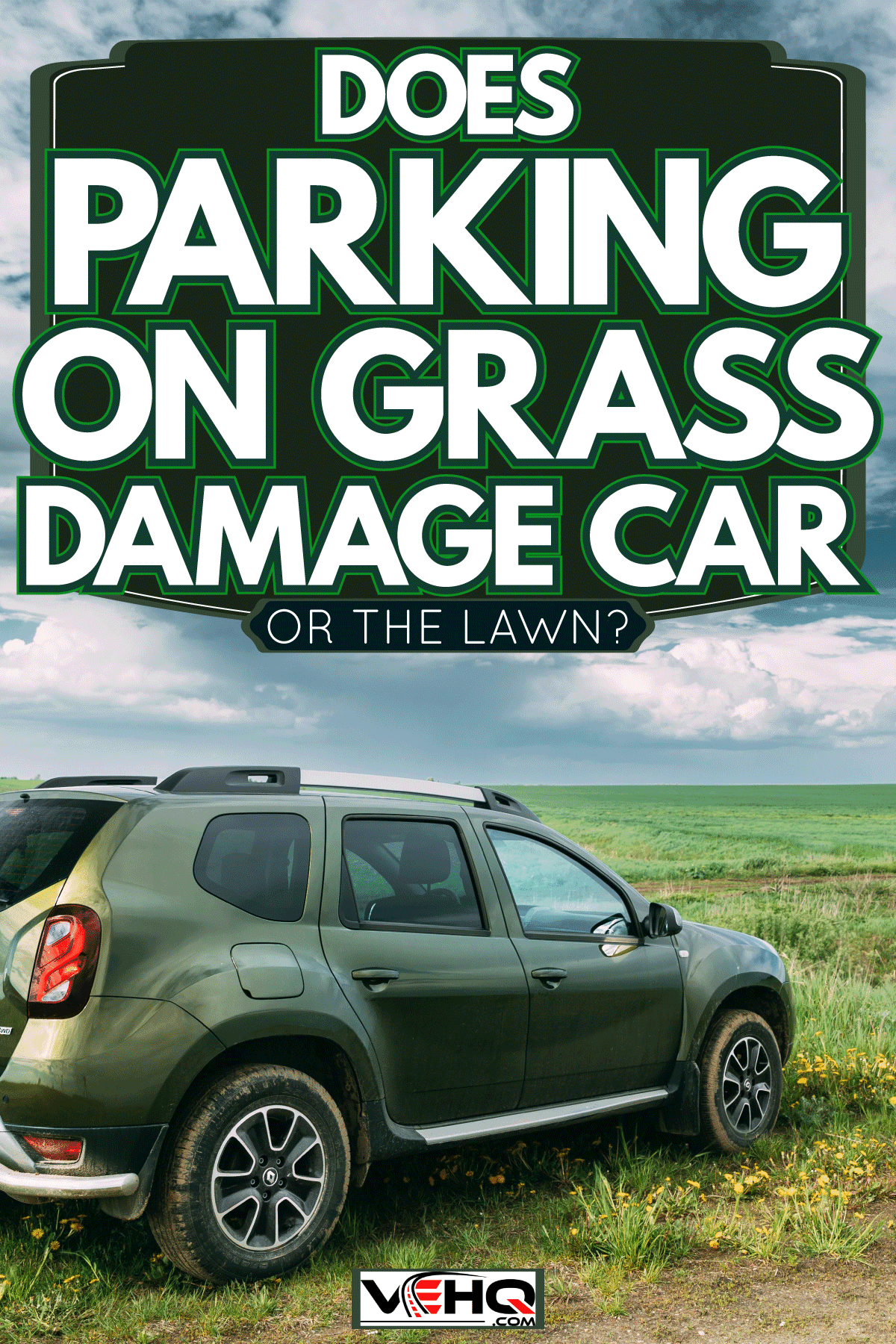
What Causes Damage To My Car And Grass?
Organic compounds can damage something as solid as your car over time. Likewise, any vehicle's chemicals and sheer mass won't do the grass any favors, either.
Let's look at how long-term or regular parking on a grassy surface will damage both the car and the lawn.
Vehicle Damage
Parking long-term on the grass can damage your vehicle over time. Grass surfaces are full of moisture. This moisture will slowly invade your vehicle and increase the likelihood of damage.
Moisture will evaporate from the grass, and the vapor will stick to your undercarriage. There are a lot of nooks and crannies under your car that will be subjected to this moisture.
If you park on grass for a long time (weeks), this can slowly break down the protective coatings.
If your regular parking spot is on grass, consider a protective plastic mesh to park on. These can be laid down over the grassy area and easily parked on.
They can be picked up and removed when not needed to allow the grass to thrive.
Grass Damage
Short-term and infrequent parking on a lawn won't do lasting damage. We'll discuss that in more detail later. But if you need to park on the grass full time or have many other cars regularly parking on the grass, there can be some significant damage done to your lawn.
Any leaks from your vehicle will damage the grass.
The longer the car is parked, the more severe this can be. Imagine what long-term leaking of oil, brake fluid, radiator coolant, or any other slowly dripping mess will do to organic material.
A little bit that might be dripped onto it over a few hours likely won't harm anything, but long-term exposure will damage the grass and the soil.
Soft soil will cave some, making indentations where the tires are set. Pulling away from a grassy parking space can create ruts, especially after a good rain. Though these ruts can be superficial and quickly heal, some are severe and will result in the need to resod.
How Can I Park On The Grass Without Harming It?
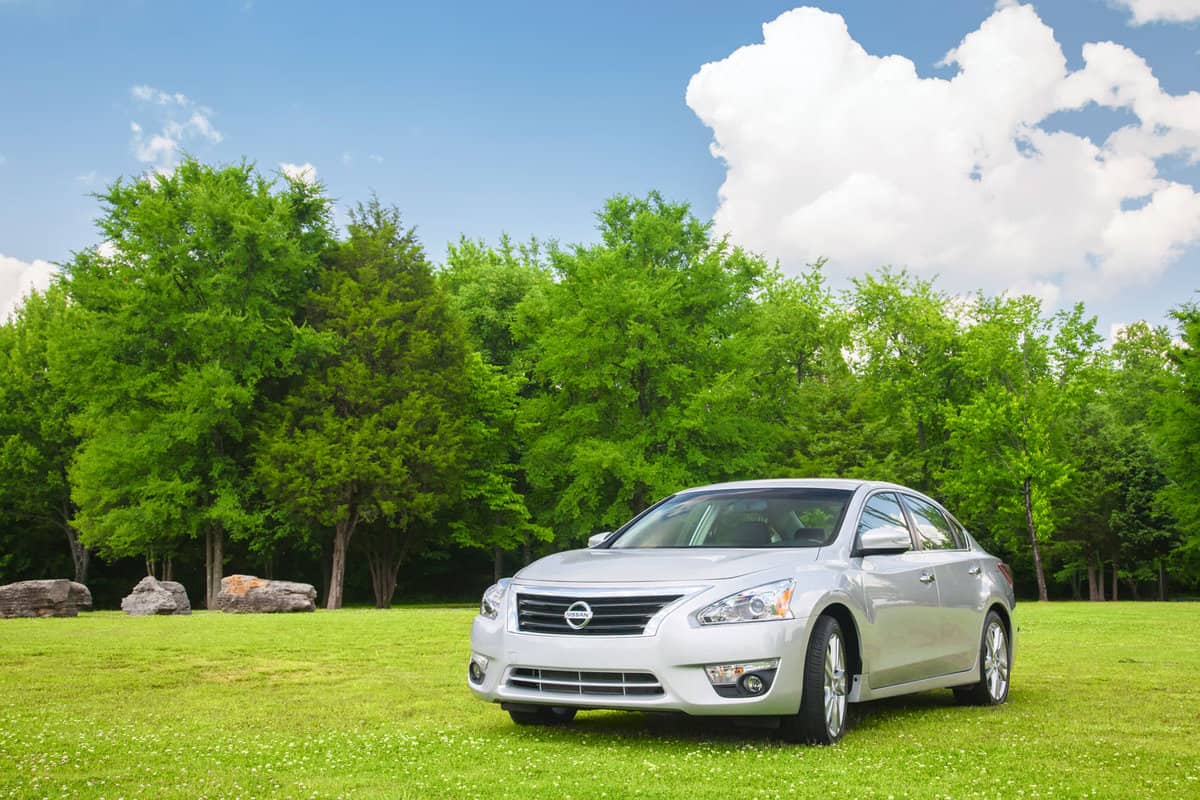
Occasional parking on a lawn most likely won't do any lasting damage to the grass or soil. Wet conditions can lead to rutting, but this is remedied fairly quickly.
It's long-term or frequent parking on grass that you need to worry about.
There are protective plastic meshes that you can place on the lawn to protect it. This will serve as a barrier to keep the fluids from dripping onto the surface of the grounds.
More importantly, it evenly distributes the vehicle's weight so that it doesn't put all the pressure underneath where the tires are.
These plastic overlays will keep rutting from happening as well. As soon as they are lifted, it doesn't take much time for the grass to look as if nothing had ever been parked there.
Is It Legal To Park On Grass?
You might think that you could park anywhere you'd like on your property without any issues with the law. But you might be surprised to discover that many local governments have strict rules against doing so.
In areas that prohibit parking on the grass, they will have that you must park any vehicle on concrete, asphalt, or graveled surface in their code of ordinances.
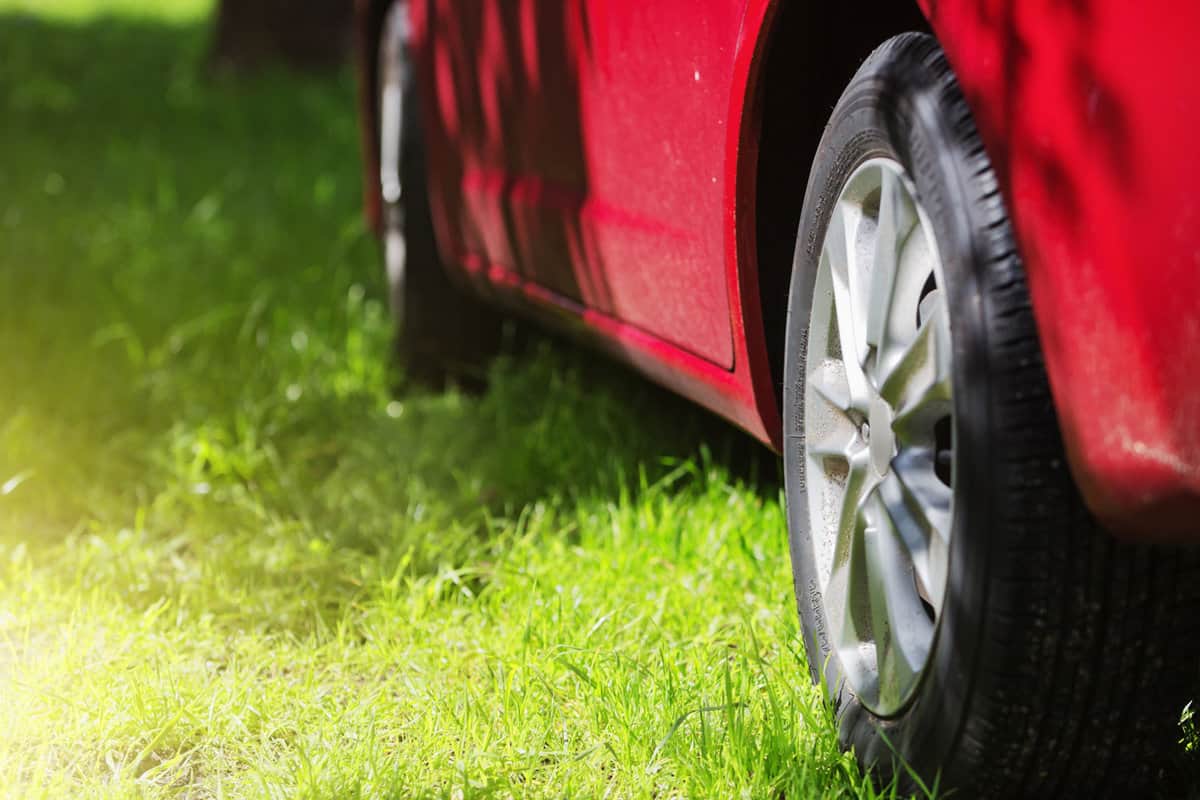
Of course, this is different from city to city. To find out if your local government permits it, a call to local officials or an online inquiry would answer your question.
Keep in mind that the potential restrictions for parking on the grass area by far more common within the city limits. It is extremely rare for there to be any county-wide ordinance that would keep you from parking on your grass if you lived outside of town.
Is Parking On Dirt Bad For Your Tires?
Tires are pretty tough parts of your vehicle. They are engineered to zip down highways at high speeds while also designed to drive over graveled surfaces.
They can withstand the friction from the roadways and the roughness that rocky surfaces expose them to. That said, parking your car on a dirt surface won't harm your tires or any other part of your car.
If the area is dusty, you might have to change your air filter more often. And if you are on a dirt surface after a rain, you're sure to get some mud spun up onto your undercarriage.
But none of those things will create any damage. A level dirt surface is about as safe for your tires as a level concrete or asphalt. It might mean a trip or two more to the car wash, but that's all.
How Long Can I Leave My Car Parked Without Starting It?
Cars are meant to be driven, not parked for long periods. But we understand that there might be some circumstances where you either won't need to drive your car or will be unable to for extended periods.
Under normal circumstances, it's the battery that you should be concerned with if you leave your vehicle parked. Over time, the battery will slowly lose its charge, making it impossible to start.
This can take two and four weeks, so if you do not need to drive your car, it's best to start it and run it for a few minutes every week.
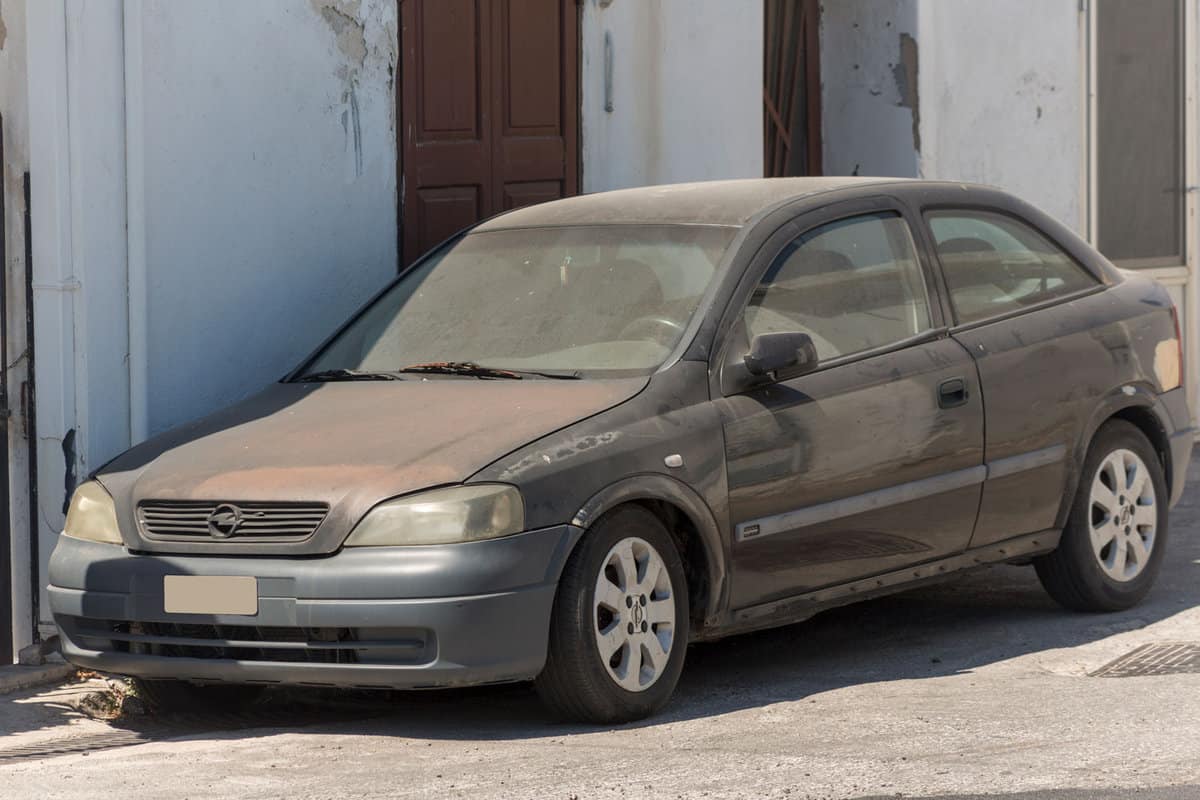
Should you be unable to start your car for two weeks or more, experts recommend that you disconnect the battery. This will preserve much of the charge in it that you will need to start the engine once you can drive it again.
Remember that disconnecting the battery will reset your onboard clock and other electronics.
How Do I Prevent A Car From Hitting My House?
It's a terrifying news piece to read about; someone sounds asleep in their home at night when a passing car loses control and skids off the roadway and hits your home.
It happens more than you might think. Thankfully, there are ways that you can avoid this.
Plant Trees
This strategy will take some time, but large trees in front of your home can be a barrier for any stray car crossing your lawn. It is recommended that a nursery worker help you select the type and how far you should space them.

This will also add to the beauty of your property and form a protective barrier.
Install A Wall
A retaining wall or decorative rock wall will certainly slow down any vehicle driving in your home's direction. While these can be expensive to construct, they can usually be quickly built.
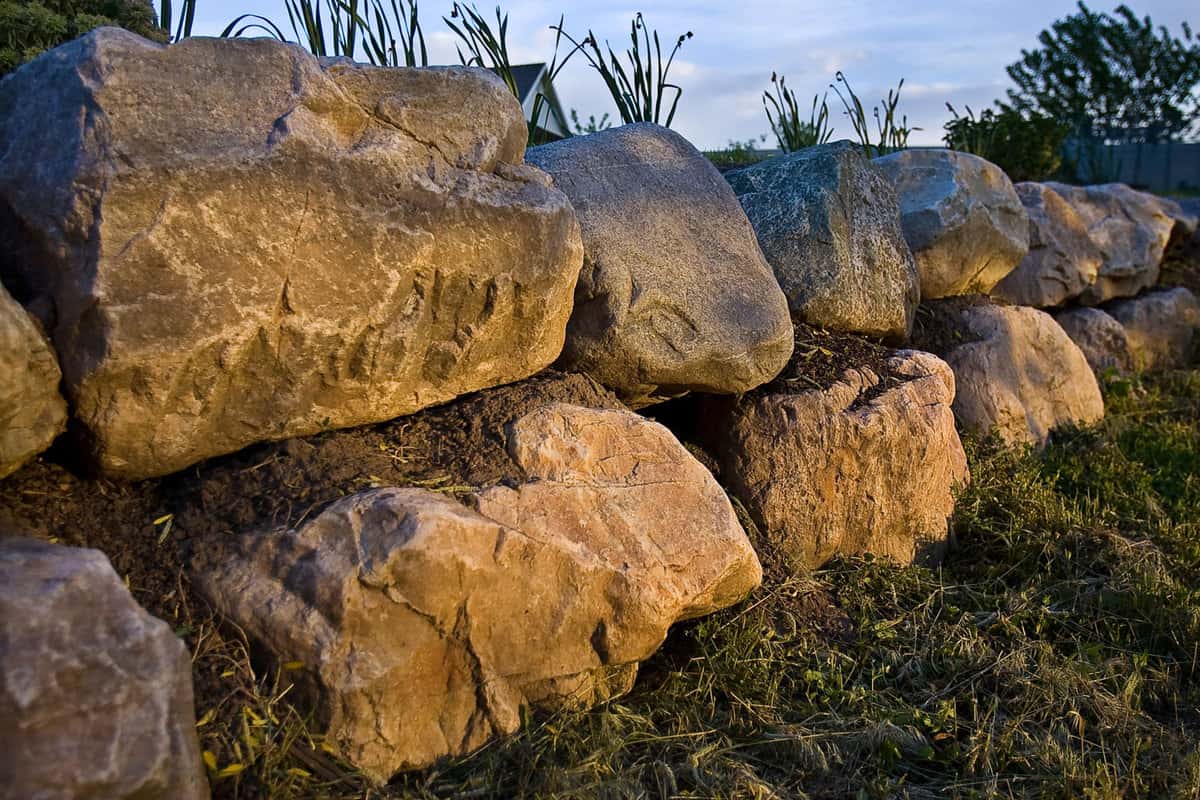
These walls can add a great aesthetic value to your property and increase its value.
Use Boulders
Large, decorative rocks are the quickest and least expensive way to protect your home from unwanted car collisions. These can be found at many home and garden stores.
They are very heavy, and you'll not likely be able to do these independently. But once they are in place, they can add a unique look to your lawn and form a layer of protection.
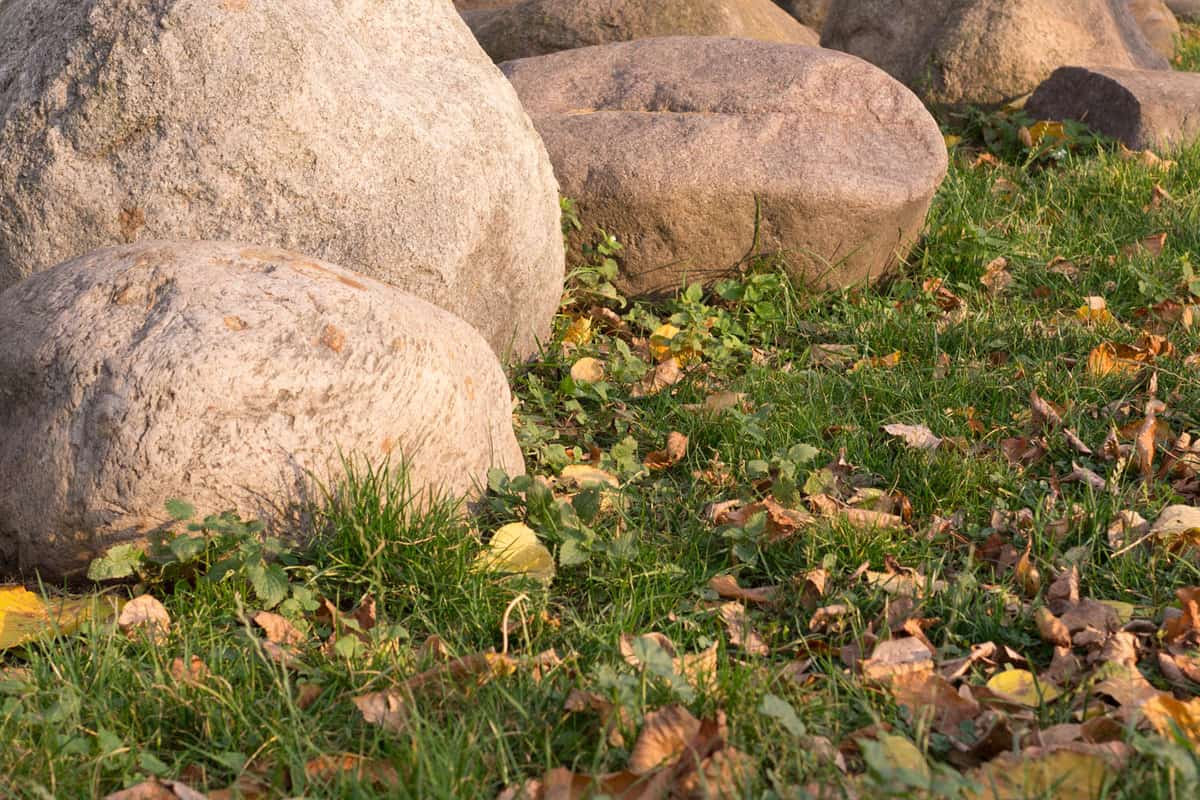
Before attempting any of the above, be sure you know your local laws and how they are applied to landscaping. This is important if you have a home owner's association, some of which have stricter rules than the local government.
Always check the rules before you make any modifications to your property so that you are saved some potential fines.
Our Final Thoughts
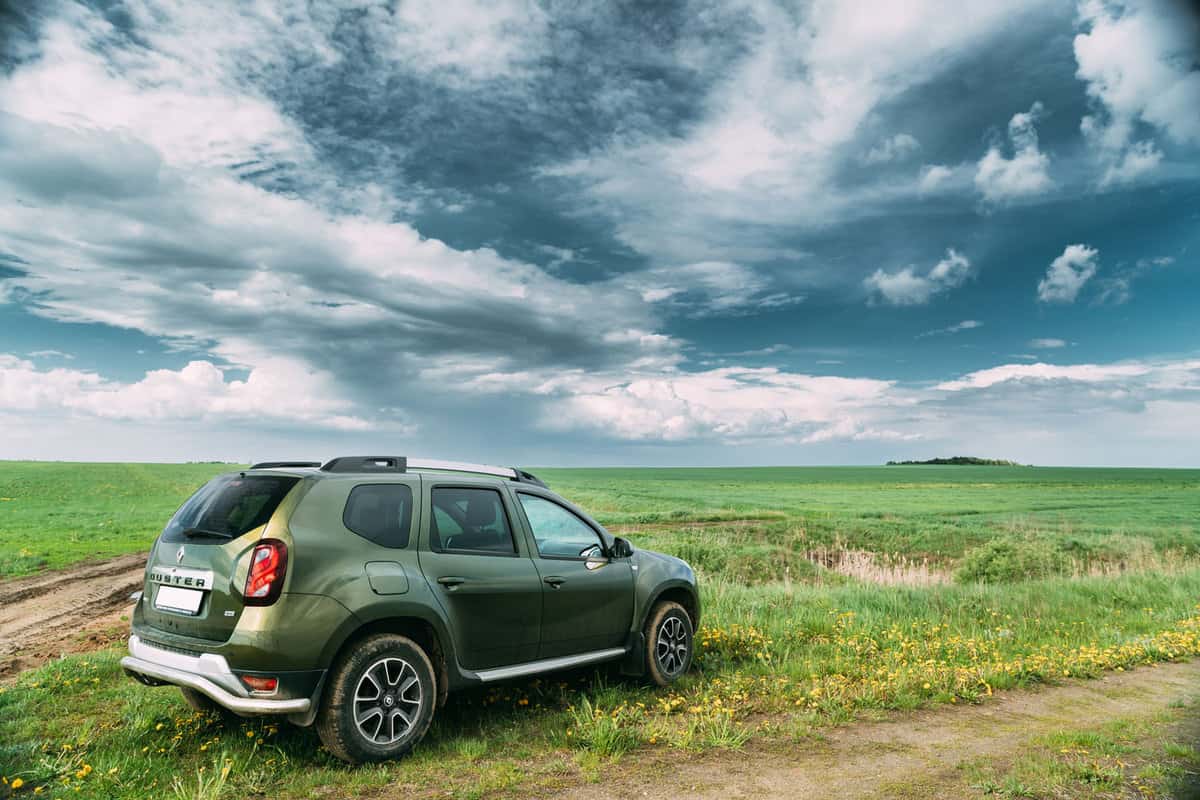
If you need to park your vehicle for a bit on the grass, it won't harm it or the lawn. Just be sure you take precautions for regular or long-term grassy surface parking.
Just as important, you should familiarize yourself with the local laws to know if it's legally allowed to park on the grass. Drive safe!
Made it this far? Check out these helpful related posts below!
How Long Tires Should Last On A Brand New Car?
How To Protect The Underside Of A Car From Rust
Not Using Your Car For a Long Time? Here Are 12 Things To Do
